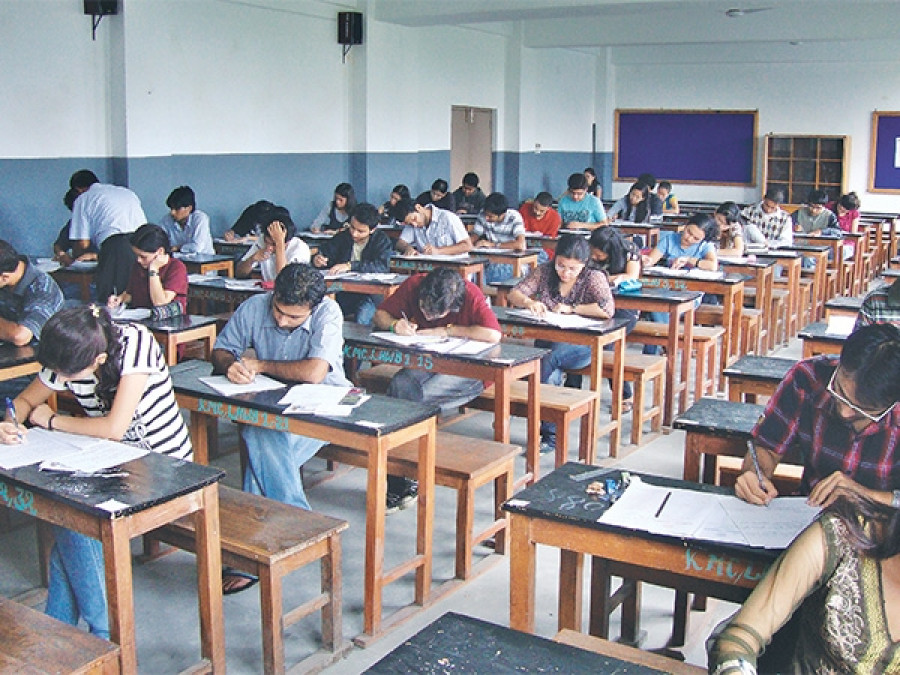Editorial
The future of education
The government needs to release the education reform report so that a larger discourse may begin
Nepal’s education system has faced many issues over the years. While people have lamented the deteriorating quality of education in public schools, they have also cried foul over the profit-making agenda behind private schools that are supposedly better at providing education. In August 2018, the government had set up the High-Level National Education Commission to make recommendations for the formulation of a new education policy. The Commission, headed by the education minister, had submitted their final report to Prime Minister KP Oli in January. Four months on, and the report is yet to be made public. The government needs to publish this report, so that a public discourse can begin on its recommendations and a strong, effective education policy might be adopted.
The current debate in the education sector revolves around constitutional provisions that ensure certain rights to the people. Schedule 8 of the Constitution explicitly ensures that local governments have the authority to manage school-level education. Article 30 (2) of the Constitution gives every citizen the right to free, and compulsory, education upto the basic level (till grade 8) and free education upto the secondary level (grade 12) from the State. Nepal’s constitution is considered progressive on many fronts. It ensures, on paper, many positive rights—rights that permit or oblige action. The right to free and compulsory education from the state is a positive right, wherein the state is obliged to fulfil this provision by making changes in the education sector. The problem here is that, although already enshrined in the constitution, the government has not figured out how to implement free education in a federal set-up. Moreover, there hasn’t been enough public debate on whether this right is feasible, or what is the best way to go about actually ensuring it.
It was in the spirit of finding solutions to the education conundrum that the High-Level Commission was formed. The commission had submitted its report to the prime minister in the presence of Minister for Education, Science and Technology Giriraj Mani Pokharel on January 15, 2019. However, multiple calls for the report to be made public, including a Right to Information plea in March by the National Campaign for Education, have gone ignored. In the meantime, the government has been working on endorsing a Federal Education Act, though there have been delays.
It is highly suspicious that the government has been unwilling to release the report publicly, when the members of the Commission themselves have been publicly advocating for its release. Now, until the report is made public, we will have no way of knowing whether provisions in the Federal Education Act and the national education policy fall in line with recommendations from the High-Level National Education Commission, which comprised of many education experts. Moreover, before any changes are adopted, there needs to be a larger public discourse on the recommendations themselves, to see whether they are feasible, given the Nepali context.




 16.12°C Kathmandu
16.12°C Kathmandu














